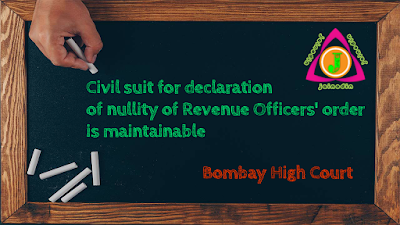Electronic Evidence obtained illegally - Petition for divorce u/s. 13(1)(ia) of The Hindu Marriage Act - CCTV footage recorded without knowledge of wife - In recording wife was found to be talking on phone with her lady friend in a manner derogatory and defamatory to the husband - Husband produced CD of this recording as the evidence in divorce proceeding - Wife in her written statements opposed that CD to be tampered with and inadmissible as it is procured in breach of her right of privacy - After this objection husband made an application to family court to get the genuineness of CD examined from Forensic Lab - Family allowed that application and the same challenged by wife before High Court
Can CCTV audio-video secretly recorded by a spouse be permitted to be used against other spouse in a matrimonial dispute?
Held: In matrimonial dispute, secret recording is admissible in evidence if found to be relevant to the facts-in-issue; and the other party can initiate legal action action the party for adopting illegal means; but such action would not render the illegally obtained evidence inadmissible if it is otherwise relevant for the purpose of deciding the matrimonial dispute between the parties.
Held: In matrimonial dispute, secret recording is admissible in evidence if found to be relevant to the facts-in-issue; and the other party can initiate legal action action the party for adopting illegal means; but such action would not render the illegally obtained evidence inadmissible if it is otherwise relevant for the purpose of deciding the matrimonial dispute between the parties.
The sequitur to the aforesaid constitutional and legal landscape is that :
(a) The settled rule, purely from the standpoint of the law of evidence, is that evidence is admissible so long as it is relevant, regardless of how it is collected. Digressing from this settled position would have wide ramifications and consequences; and would be a serious hindrance to judicial proceedings across the board, in several foreseeable and unforeseeable ways. On the other hand, the possible misuse of this rule of evidence, particularly in the context of the right to privacy, can be addressed by prudent exercise of judicial discretion by a court not at the time of receiving evidence but at the time of using evidence at the stage of adjudication ;











